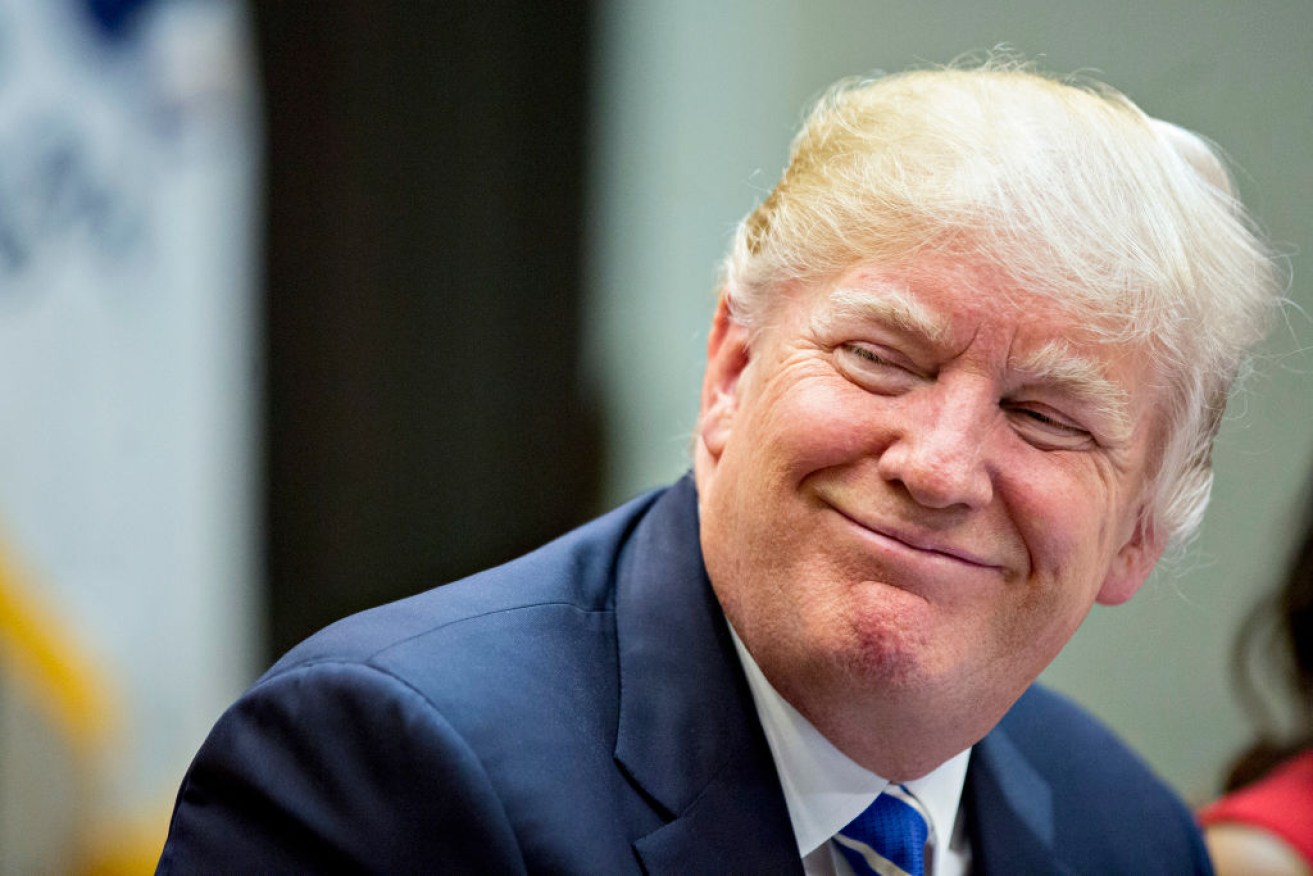We’re being duped into cutting ‘high’ corporate taxes


Donald Trump said sexually harassing a woman where there were cameras did not make sense. Photo: Getty
When US President Donald Trump addresses this year’s Davos Economic Forum on Friday, some members of the business and government elites present will be cheering the boost to global growth attributed to his corporate tax cuts.
‘Attributed’ is the operative word, because anyone who is cheering has misread what the International Monetary Fund actually said about that boost earlier this week.
Maurice Obstfeld, director of research at the International Monetary Fund, noted on Monday that while the IMF had raised its forecasts for global growth by 0.2 percentage points in 2018 and 2019, the Trump tax cuts would cut both ways.
He wrote: “The recent US tax legislation will contribute noticeably to US growth over the next few years, largely because of the temporary exceptional investment incentives that it offers.
“This short-term growth boost will have positive, albeit short-lived, output spillovers for US trade partners, but will also likely widen the US current account deficit, strengthen the dollar, and affect international investment flows.”
‘Affect’ is something of an understatement. Mr Trump’s tax cuts and one-off concessions will bring investment dollars flooding back into the US and create American jobs, but at the expense of other investments overseas.
Tax Down Under
Back in Australia, this is providing some political cover for the Coalition’s plans for company tax cuts of its own – from 30 per cent to 25 per cent over the next seven to 10 years.
Treasurer Scott Morrison argues that Australia has to compete with the US by cutting tax for all companies – not just the small- to medium-sized enterprise (SMEs) who got their first tax cut of 1.5 percentage points at the 2016 budget.
But that argument only makes sense if you look at headline tax rates. Bean-counters at large corporations instead look at the ‘effective tax’ their company would pay after all refunds and asset depreciation are taken into account.
When effective tax rate figures are considered, Australia turns out to be a very low taxing nation.
Late last year, the ABC published figures prepared by the US Congressional Budget Office which show how big that disparity is: Australian firms get so many refunds and write-offs that their effective tax rate is 10.4 per cent compared with the US companies paying 18.6 per cent – see the original report here.
Even after the Trump cuts, the effective tax rate here will be considerably lower – meaning any management accountant worth his or her salt would tell their CEO that Australia is more than competitive already.
Shifting the burden
So what effect would cutting corporate taxes across the board actually have in Australia?
Firstly, that 10.4 per cent figure would fall, meaning more of the tax burden has to be carried by households.
Given that those households are already receiving a record low share of GDP in wages, that doesn’t make much sense – personal income tax cuts, which the Coalition is now hinting will be in the next budget, would be much better.
Secondly, the 10.4 per cent effective tax rate is not shared evenly across companies.
Large companies are better at avoiding tax than SMEs, so to reach an average of 10.4 per cent, most small businesses will be paying well in excess of that figure while some large firms pay next to nothing.
To compound that problem, Australia’s tax system does not double-tax profits that are distributed through dividends to Australian residents – it lets local investors off the hook by issuing franking credits that reduce their tax bill for other income.
So if company tax is reduced for Australia’s larger corporations, local investors mostly won’t see any increase in the income they earn via dividends, but overseas investors certainly will.
That’s bonkers, because as the costs of providing healthcare to an ageing population rise, and education spending for a growing population certainly don’t fall, the tax system would be skewed in entirely the wrong direction – the burden shifting from overseas investors in large corporations, to households and the owners of small businesses.
Australia is a large importer of capital, and as the Congressional Budget Office figures show it is extremely generous in the low effective tax rates it offers to overseas investors thinking of bringing capital to our shores.
To turn that ‘extremely generous’ offer into ‘ridiculously generous’, while asking SMEs and households to pick up the slack, would not make us look ‘competitive’ to foreign investors – more ‘gullible’ and ‘naive’.








